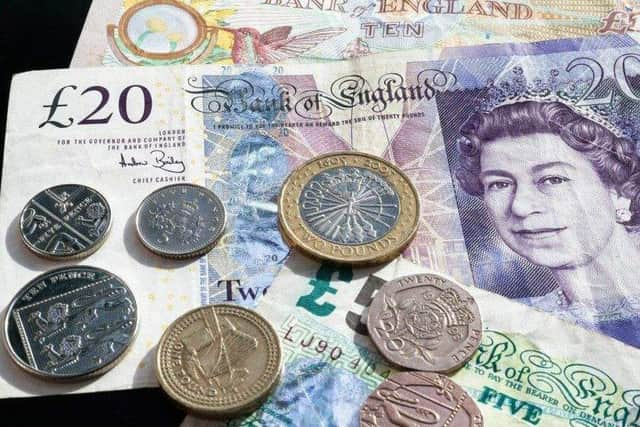Interest rates hiked to 1.75%, recession predicted, incomes to fall
and live on Freeview channel 276
Andrew Bailey, the bank's governor, confirmed on Thursday that the Bank of England’s Monetary Policy Committee (MPC) at a meeting on Wednesday, voted by a majority of 8-1 to increase the Bank Rate by 0.5 percentage points, to 1.75%.
The aim is to try to address spiralling inflation which BoI estimates will hit 13% in 2022 Q4, and remain at very elevated levels throughout much of 2023, before falling to the 2% target two years ahead.
Advertisement
Hide AdAdvertisement
Hide AdAnnouncing the rise this afternoon Mr. Bailey warned of bleak economic prospects ahead, predicting a recession in the United Kingdom in the autumn.


"The United Kingdom is now projected to enter recession from the fourth quarter of this year. Real household post-tax income is projected to fall sharply in 2022 and 2023, while consumption growth turns negative," he stated.
Minutes of the MPC meeting on Wednesday show that international factors played a part in its reasoning, including the war in Ukraine and the European economy.
"European spot and futures gas prices had roughly doubled since the MPC’s previous meeting in mid-June, as the risks of Russia limiting severely the flow of gas to Europe had started to crystallise.
Advertisement
Hide AdAdvertisement
Hide Ad"The Dutch Title Transfer Facility spot price, a measure of European wholesale gas prices, had risen to around €200 per MWh, close to its peak around the start of the Russia-Ukraine war.
"In response to Russia’s restriction of gas flows, EU member countries had agreed to a voluntary 15% reduction in gas consumption until the spring of 2023. Prices of other commodities, such as food, oil, and metals, had fallen materially since the MPC’s previous meeting, with the movements in the latter two prices likely to have reflected a weakening near-term global growth outlook," the minutes states.
A slowdown in two of the biggest economies in the world - the United States and China - influenced the decision as well.
In the Americas: "US GDP had fallen by 0.2% in 2022 Q2, the second consecutive quarter of negative growth. While the fall had been mainly accounted for by lower stockbuilding, domestic final demand growth had also slowed. The unemployment rate had remained at 3.6%, while there were early signs of a levelling out of the increase in vacancies in high-frequency data."
Advertisement
Hide AdAdvertisement
Hide AdAnd in China: "GDP had fallen by 2.6% in 2022 Q2, significantly weaker than had been expected and related largely to the strict regional lockdowns due to Covid and continued weakness in the property sector. GDP growth in Q3 was expected to recover, due to the easing of Covid restrictions."
